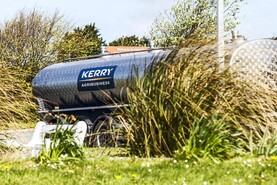Dublin City University (DCU) has been awarded over €210,000 in research funding for a project aimed at improving how Irish farmers seek mental health supports.
International research has shown that farmers around the world are less likely than other groups in society to seek help when it is needed.
Associate professor Dr Siobhán O'Connor and assistant professor Dr Donnla O'Hagan in the school of health and human performance in DCU are leading the two-year project, which is being funded by the Department of Agriculture.
Dr O’Connor, who comes from a farm in west Cork, told the Irish Farmers Journal that while mental health supports are available, unless farmers reach out and engage with these services, they are ineffective.
Farmers have to be really good at all aspects of their job to keep it together
“Farmers are at risk of depression, stress, anxiety and burn-out. Farming is a tough job, and farmers can get stressed.
"As well as the physical work, they have to be good at finance, they have to be good at taxes, they have to be inventive and innovative all the time. They have to be really good at all aspects of their job to keep it together.
“Farming also has poor social supports, compared to, for example, a factory or office worker, where you have colleagues to talk to and maybe a HR department. Farmers have none of that.”
Identifying issues
The DCU project aims to help farmers improve their mental health seeking by firstly identifying how common mental health issues are in Irish farmers through anonymous surveys.
Next, focus groups with farmers and key stakeholders, such as the IFA, Macra na Feirme and Teagasc, will also investigate the barriers and facilitators to mental health help-seeking.
Based on this work, the DCU pair aim to create a bespoke, evidence-based mental health education programme for Irish farmers.
Stigma
Dr O’Connor said that there is a stigma around mental health in the entire Irish population, but farmers can be particularly inclined to self-stigmatise.
“They would be the first ones to make sure their wife or child would get help, but when it comes to themselves, men are much more reluctant,” she explained.
“They want to fit the rural masculine norm, which sees them as the man of the house who doesn’t need help.”
The DCU team have previously worked with GAA athletes on mental health seeking and Dr O’Connor said there are many similarities between athletes and farmers.
“Their whole life revolves around being an athlete or being a farmer, it defines who they are and they often don’t want to admit they need help or don’t recognise that they need help.”
The pair will be surveying farmers in early 2022 to begin the two-year process of developing the farmer education programme.
Read more
Mental health first aid training
Mental Health: overcoming gut-wrenching anxiety
Dublin City University (DCU) has been awarded over €210,000 in research funding for a project aimed at improving how Irish farmers seek mental health supports.
International research has shown that farmers around the world are less likely than other groups in society to seek help when it is needed.
Associate professor Dr Siobhán O'Connor and assistant professor Dr Donnla O'Hagan in the school of health and human performance in DCU are leading the two-year project, which is being funded by the Department of Agriculture.
Dr O’Connor, who comes from a farm in west Cork, told the Irish Farmers Journal that while mental health supports are available, unless farmers reach out and engage with these services, they are ineffective.
Farmers have to be really good at all aspects of their job to keep it together
“Farmers are at risk of depression, stress, anxiety and burn-out. Farming is a tough job, and farmers can get stressed.
"As well as the physical work, they have to be good at finance, they have to be good at taxes, they have to be inventive and innovative all the time. They have to be really good at all aspects of their job to keep it together.
“Farming also has poor social supports, compared to, for example, a factory or office worker, where you have colleagues to talk to and maybe a HR department. Farmers have none of that.”
Identifying issues
The DCU project aims to help farmers improve their mental health seeking by firstly identifying how common mental health issues are in Irish farmers through anonymous surveys.
Next, focus groups with farmers and key stakeholders, such as the IFA, Macra na Feirme and Teagasc, will also investigate the barriers and facilitators to mental health help-seeking.
Based on this work, the DCU pair aim to create a bespoke, evidence-based mental health education programme for Irish farmers.
Stigma
Dr O’Connor said that there is a stigma around mental health in the entire Irish population, but farmers can be particularly inclined to self-stigmatise.
“They would be the first ones to make sure their wife or child would get help, but when it comes to themselves, men are much more reluctant,” she explained.
“They want to fit the rural masculine norm, which sees them as the man of the house who doesn’t need help.”
The DCU team have previously worked with GAA athletes on mental health seeking and Dr O’Connor said there are many similarities between athletes and farmers.
“Their whole life revolves around being an athlete or being a farmer, it defines who they are and they often don’t want to admit they need help or don’t recognise that they need help.”
The pair will be surveying farmers in early 2022 to begin the two-year process of developing the farmer education programme.
Read more
Mental health first aid training
Mental Health: overcoming gut-wrenching anxiety






 This is a subscriber-only article
This is a subscriber-only article










SHARING OPTIONS: